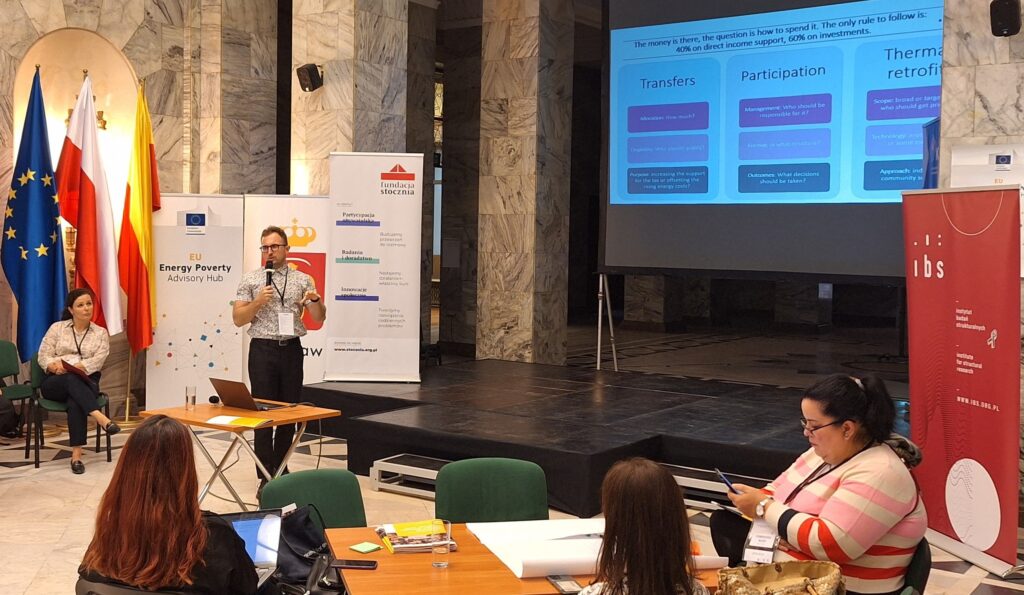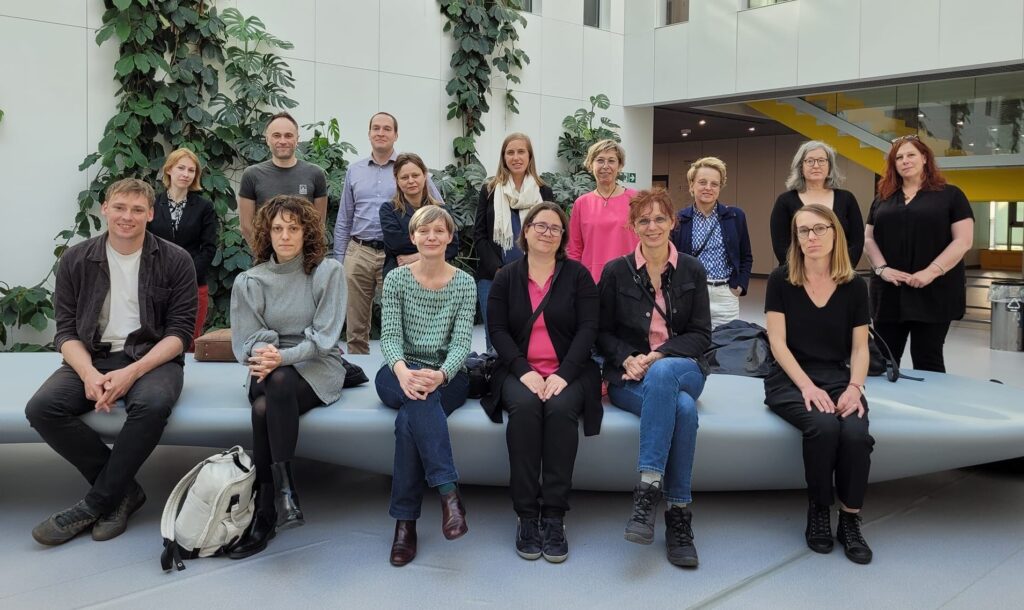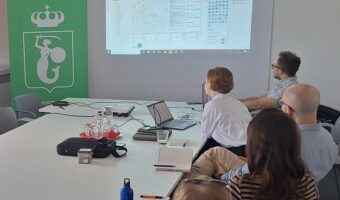Addressing energy poverty and modernising municipal buildings are significant challenges for urban policies. Polish cities lack tools for comprehensive monitoring, diagnosing, and planning building renovations, and they seldom utilise available data from other entities in these processes. In the CARE project (Carbon-neutral and Affordable Retrofits for Everyone in Need), conducted in collaboration with the City of Warsaw and supported by the ICA Fund C40 Cities, we created a tool for diagnosing and designing energy transformation of municipal assets.
Jan Frankowski, Jakub Sokołowski, and Aleksandra Prusak from IBS conducted the workshop at the City Hall of Warsaw. We discussed the available data resources, including newly opened ones, the method of generating renovation scenarios, and the developed dashboard for visualising results. During the meeting, we reviewed horizontal and technical recommendations for implementing modernisation policies based on data and using the CARE project tools in practice. The workshop was attended by representatives from the Masovian Voivodeship Self-Government, the Air Quality Protection and Climate Policies Office, and the Infrastructure Office of the City of Warsaw, to whom we extend our sincere thanks for their participation and excellent cooperation during the project.
The approach and results of the CARE project were presented at two international scientific conferences. The first was the annual EPAH 2023 conference, with an extensive report on the IBS website. The second scientific conference, “Urgency in Urban Climate Policy: Local Receptions and Translations” (May 9, 2024), inaugurated the EU-URGE project, conducted by anthropology and sociology teams at universities in Warsaw, Ljubljana, and Klagenfurt, under the leadership of Professor Anna Horolets. At the conference, Jan Frankowski emphasised the practical project’s grounding in critical social geography and justice theory, while Marcin Grądzki, Director of the Air Quality Protection and Climate Policies Office at the City of Warsaw, discussed the challenges of urban policy implementation at the intersection of various units’ competencies.


We also presented the CARE project’s results and approach during four discussion panels: the panel on energy poverty at the Clean Air Congress, the panel at the European Housing Forum, the roundtable titled “City in a Good Climate” (June 11, 2024), organised by the French-Polish Chamber of Commerce with representatives from business and central administration, and the panel on just energy transition at the 32nd Zbigniew Pełczyński School of Political Leaders (June 1, 2024). Joanna Mazurkiewicz and Jan Frankowski presented the CARE project’s solutions at these events.
Another important activity in the project was online meetings, during which we presented our approach to measuring energy poverty based on administrative data to municipal employees from Poland and other countries. In the latter case, Joanna Mazurkiewicz presented the technical report from the Sun4All project, utilising the CARE project’s approach to optimising the location of PV installations in municipal buildings.
The CARE project begins our activities related to acquiring and analysing administrative data. We plan to present our approach to other Polish municipalities at the 4th Congress of Urban and Regional Policy in Kraków and other European cities during IBS and C40 events and projects. We hope our work will enable municipalities to implement increasingly ambitious climate policies more effectively while ensuring the benefits of renovation reach those most in need.


